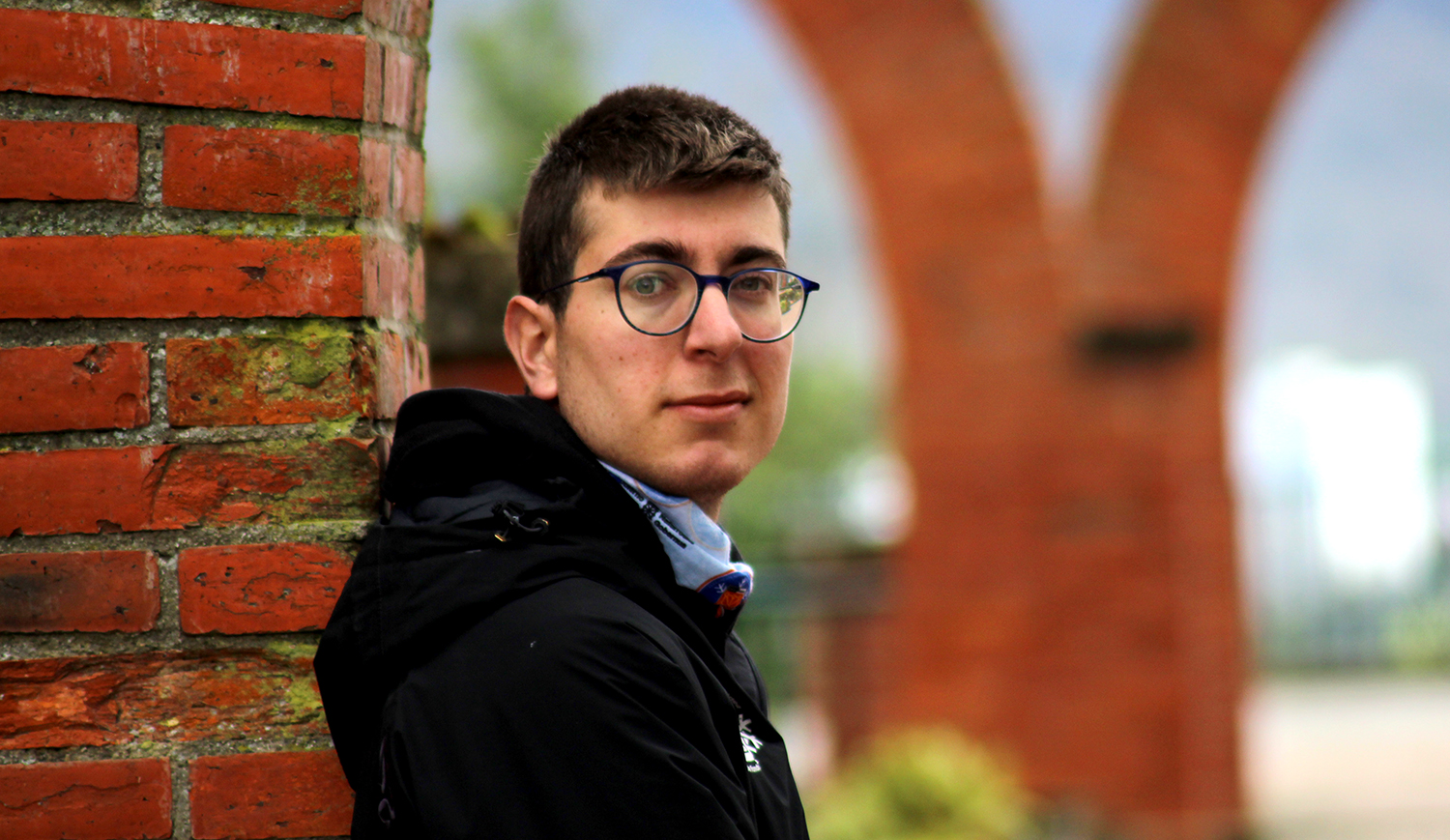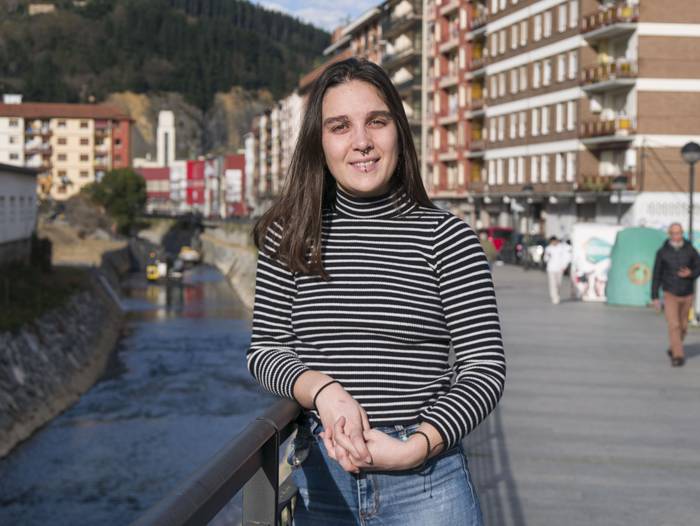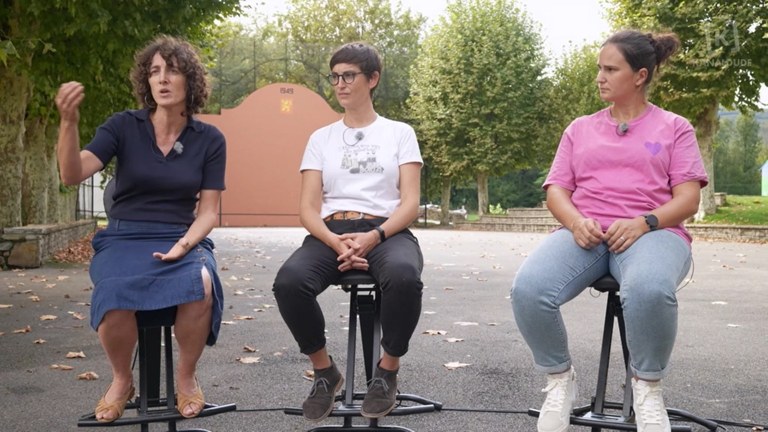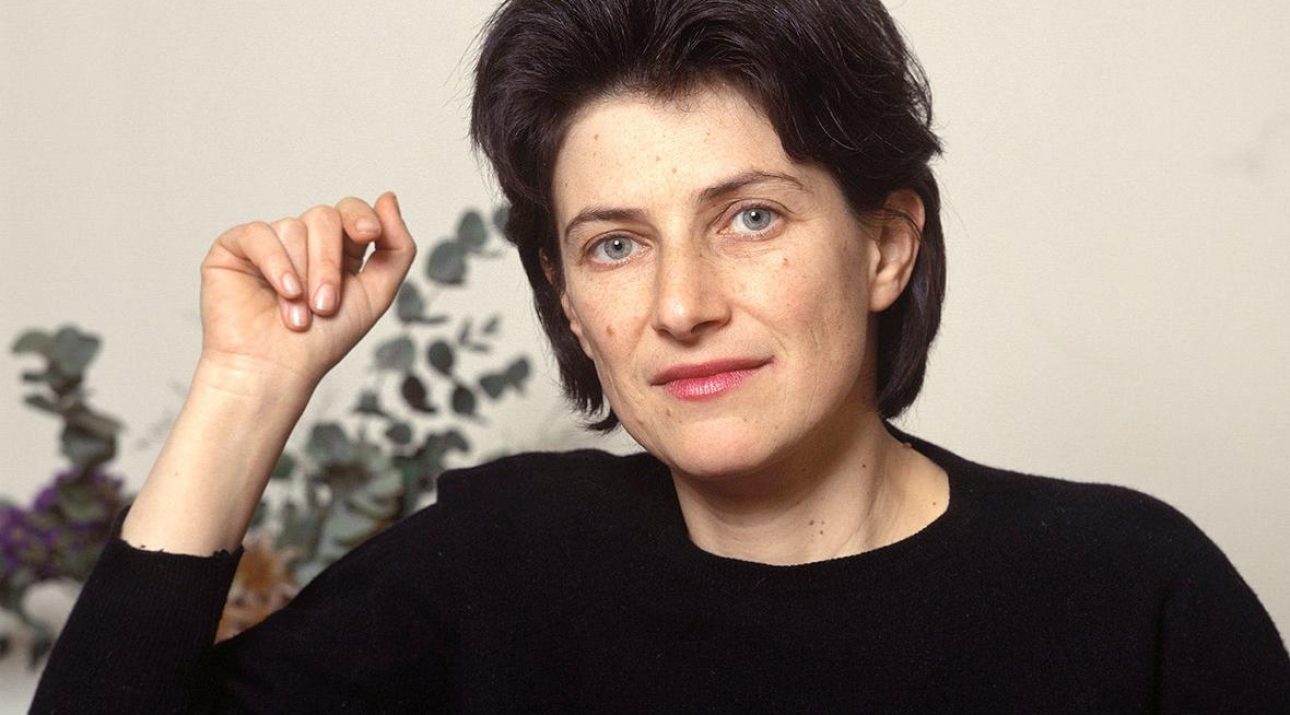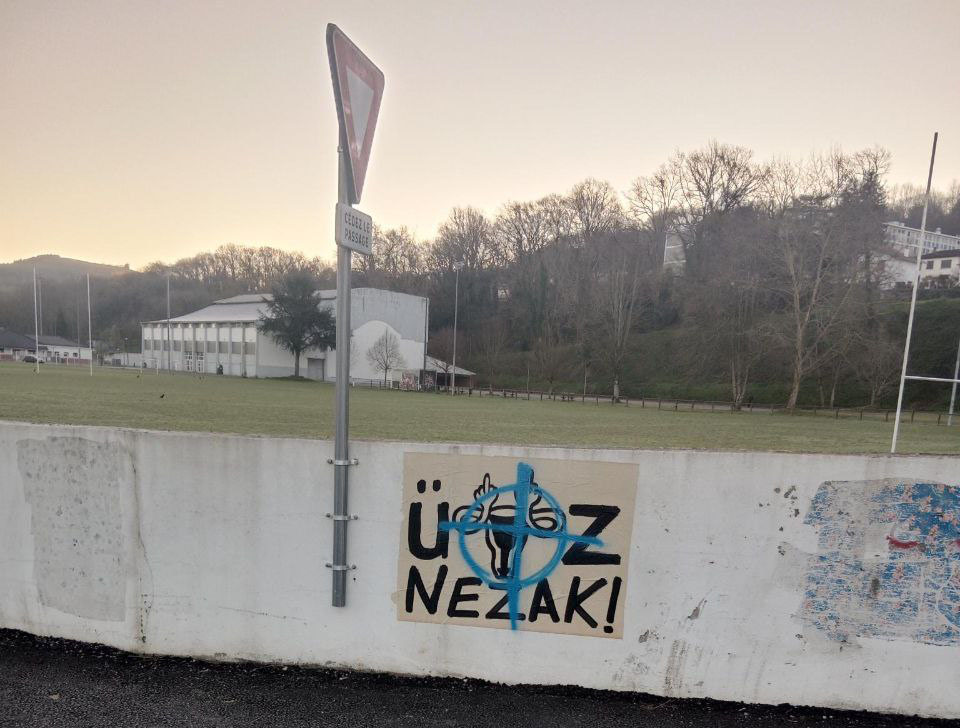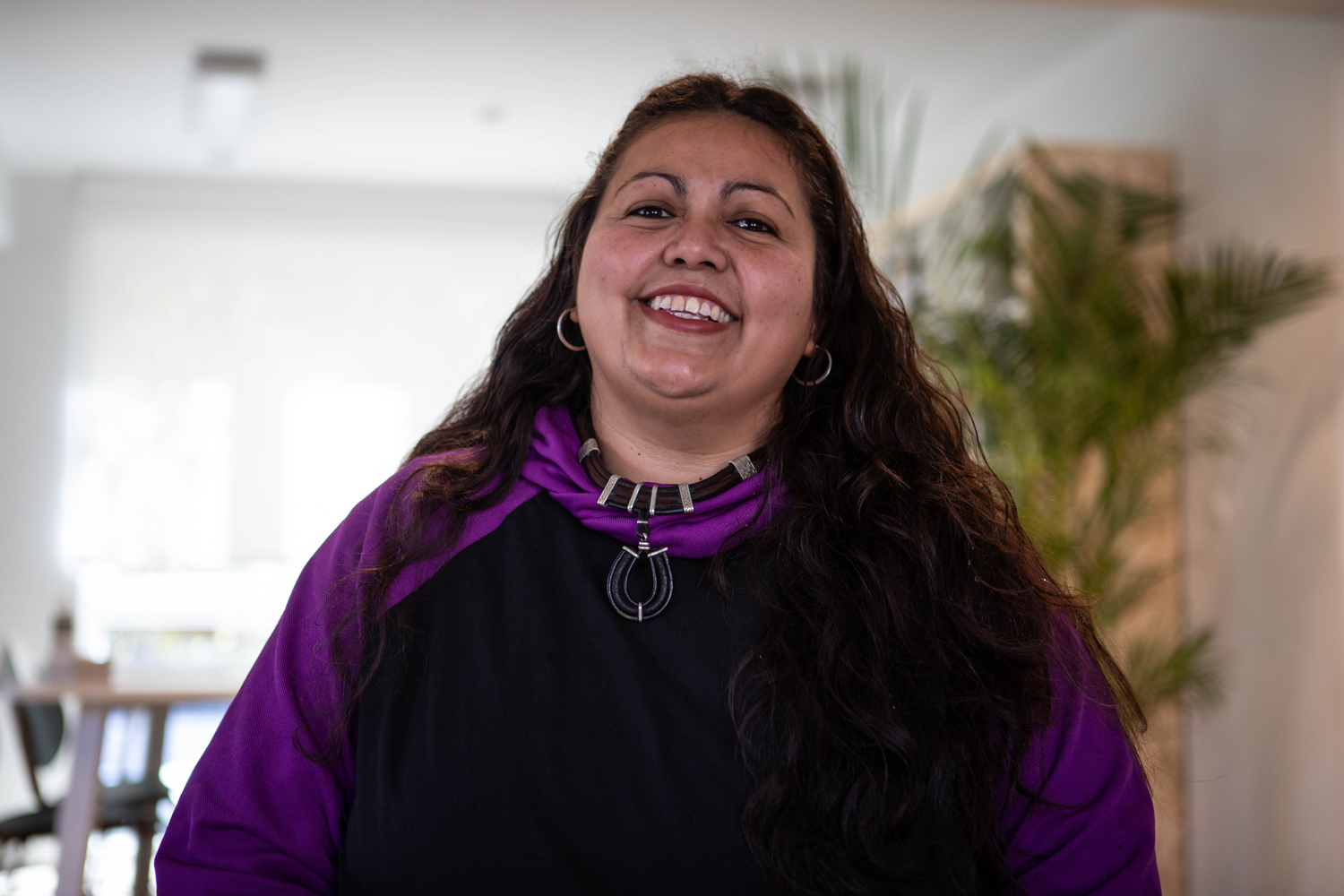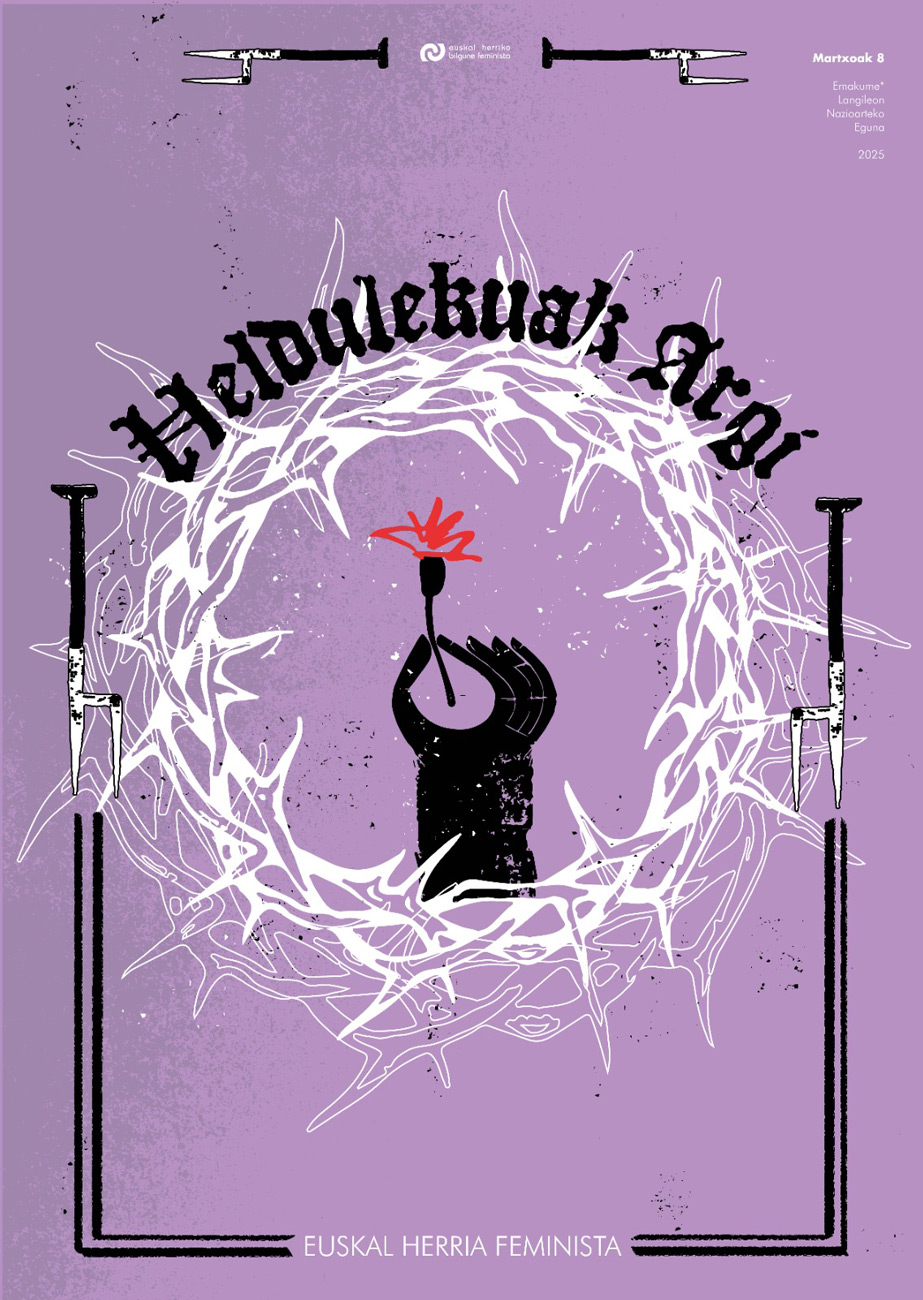Prisons are trying to confirm that the problem is you...
- ... and from the feminist movement we have to turn that idea: the problem is the patriarchal, racist and capitalist system!
The patriarchal penitentiary system makes every effort to educate women in the basket in a hell made by men. They punish us for breaking roles that women have broken in a hierarchically constituted institution. Not only do they not take our needs into account, they constantly try to make us see that the fault is ours and that the problem is ours. Adding the aggravated penalty to the isolation, remoteness… that we suffer in prison. The repression is double and triple what we suffer women dams and dams mothers, since the reasons that led us to jail add up to the penalty imposed on us for not "obeying". To do this, the possibilities offered to women prisoners in the daily life of the prison to "socialize", to break the isolation are totally heteronormative, sexist and patriarchal: washing, ironing…
While inside the attempt to control our body and thought is the bread of every day, outside society punishes us socially and not only ourselves, but the women of our family. The inmates have been criticized because we have not prioritized the family, because if we don't have children we don't have them and because we've left them. Everyone knows what it is to be a good mother and what it is not! Those in our house have been punished for what we have chosen as women. Because we have not stayed at home to take care of the family and we have to remind them that we are bad daughters. We have not complied with what the patriarchate expected! In addition, it is considered normal that they have to take care of ourselves, cook our clothes, cook for the Vixitas or make thousands of kilometers every week for them to see us separated by a glass.
Prisons and states punish our children only for being our children and outside we meet a patriarchal maternity institution and a social punishment. That’s why it’s time to talk about women* and care! We have just seen that at the time of COVID-19 the burden of the crisis has also fallen on women* and let the burden of prison surveillance also fall on us.
We leave the houses, the families we leave, the children who took us away… and we leave the fears! What will the others say, and that is what we should all do, those of us who are dedicated to surveillance and above all those who leave the care tasks! To this end, on 14 October we will have the opportunity to participate in the round table Women*, Prison, Care organized by the Feminist Group Lurgatz Mintzola de Villabona.
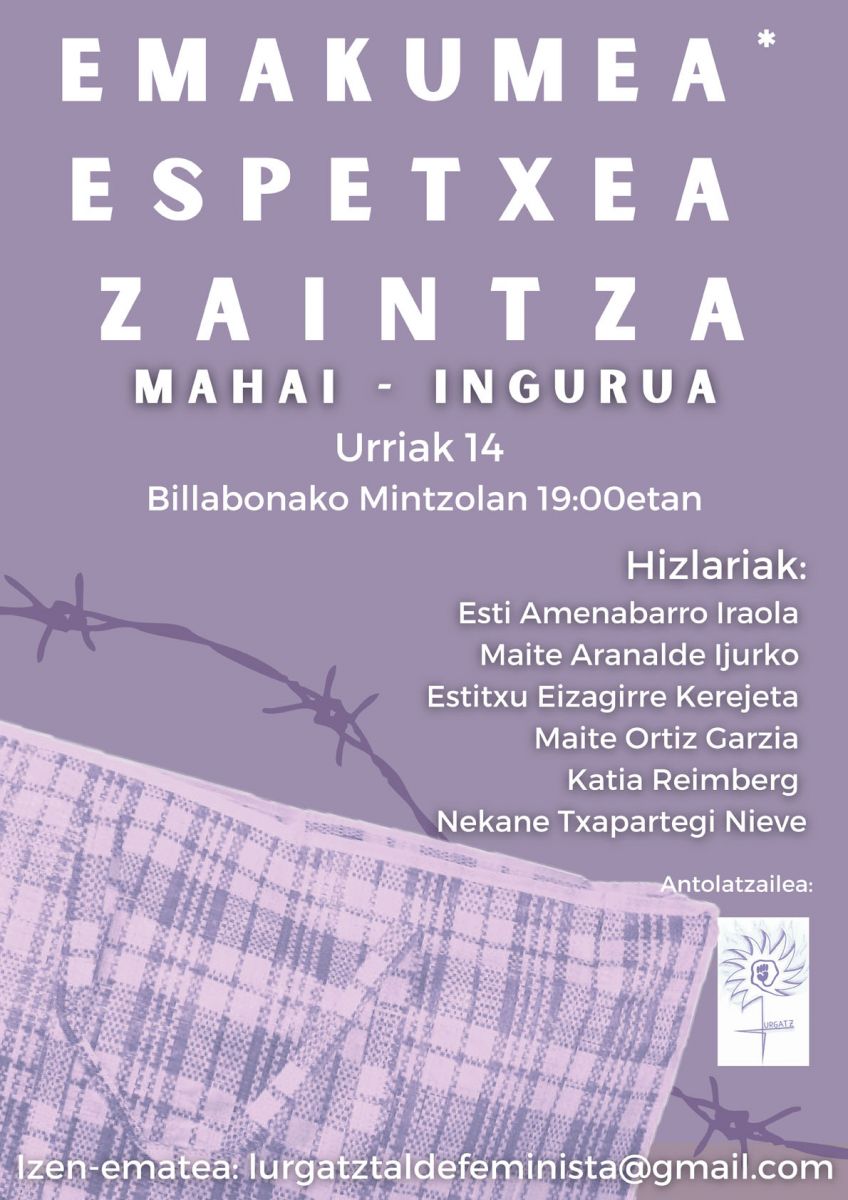
Orain arte desgaituak ez diren pertsonekin lehiatu da Uharteko Ipar Eski Taldeko Eneko Leyun eskiatzailea (Iruñea, 1998). 2024-2025 denboraldian, lehenengo aldiz parte hartu du Adimen Urritasuna duten Pertsonentzako Iraupeneko Eskiko Espainiako Txapelketan. Urrezko... [+]
Joan den urte hondarrean atera da L'affaire Ange Soleil, le dépeceur d'Aubervilliers (Ange Soleil afera, Aubervilliers-ko puskatzailea) eleberria, Christelle Lozère-k idatzia. Lozère da artearen historiako irakasle bakarra Antilletako... [+]
Endometriosiaren Nazioarteko Eguna izan zen, martxoak 14a. AINTZANE CUADRA MARIGORTAri (Amurrio, 1995) gaixotasun hori diagnostikatu zioten urtarrilean, lehen sintomak duela lau urte nabaritzen hasi zen arren. Gaitz horri ikusgarritasuna ematearen beharraz mintzatu da.
Duela aste batzuk, gurean egon ziren El Salvadorko eta Kanarietako emakumeen eskubideen aldeko hainbat aktibista. Sexu- eta ugalketa-eskubideez eta eskubide horiek urratzeak emakumeengan dituen ondorioez aritu gara; hala nola El Salvadorren berezko abortuak izanda homizidio... [+]
Zuberoako ohiturei buruzko bi liburu ditut gogoan. Batek XX. mendean aritu izan diren 180 dantzari eta soinulari aipatzen ditu. Haien artean, emakumezkorik ez da agertzen. Besteak, pastoralei egiten die errepasoa eta hor emakumeak aipatu aipatzen dira, baina omisio esanguratsuak... [+]
1984an ‘Bizitza Nola Badoan’ lehen poema liburua (Maiatz) argitaratu zuenetik hainbat poema-liburu, narrazio eta eleberri argitaratu ditu Itxaro Borda idazleak. 2024an argitaratu zuen azken lana, ‘Itzalen tektonika’ (SUSA), eta egunero zutabea idazten du... [+]
Pertsona lodiek lodiak izateagatik bizi izan duten eta bizi duten indarkeriaren inguruan teorizatzeko espazio bat sortzea du helburu ‘Nadie hablará de nosotras’ podcastak. Cristina de Tena (Madril, 1990) eta Lara Gil (Fuenlabrada, Espainia, 1988) aktibista... [+]
Donostiako Tabakaleran, beste urte batez, hitza eta irudia elkar nahasi eta lotu dituzte Zinea eta literatura jardunaldietan. Aurten, Chantal Akerman zinegile belgikarraren obra izan dute aztergai; haren film bana hautatu eta aztertu dute Itxaro Bordak, Karmele Jaiok eta Danele... [+]
Antifaxismoari buruz idatzi nahiko nuke, hori baita aurten mugimendu feministaren gaia. Alabaina, eskratxea egin diote Martxoaren 8ko bezperan euskal kazetari antifaxista eta profeminista bati.
Gizonak bere lehenengo liburua aurkeztu du Madrilen bi kazetari ospetsuk... [+]
Martxoak 8an egindako pintaketak gainetik margotu dituzte ikur faxistekin Zuberoako hiriburuan. Horren aurrean elkarretaratzera deitu dute, astelehenean.
Martxoaren 8a Getxo bere bizitokian igaro du: kumbia dekolonial eta antiarrazista topaketa antolatu du Algortako Herriko Tabernan, Abianen, Hija del Nopal DJrekin batera.
Argentinatik Getxora migratu zen Celeste Agüero, kantutegi herrikoi batekin eta poesia xuxurlatzeko... [+]
Mugimendu feministak manifestazioak egin ditu goizean Donostian, Gasteizen eta Iruñean eta arratsaldean Baionan eta Bilbon. Oinarrizko irakurketa partekatu dute, eta horri gehitu diote hiri bakoitzean bertako problematika, eragile eta ekimenen erreferentzia.
Bilgune Feministak Heldulekuak argi, Euskal Herria feminista leloa baliatu du M8an, azpimarratzeko feminismoak ematen dituela “datorrenari aurre egiteko tresnak”, eta gogorarazteko faxismoaren gorakadaren testuinguru hau helduleku horretatik irakurri eta borrokatu... [+]








